#goodbye my princess
Text
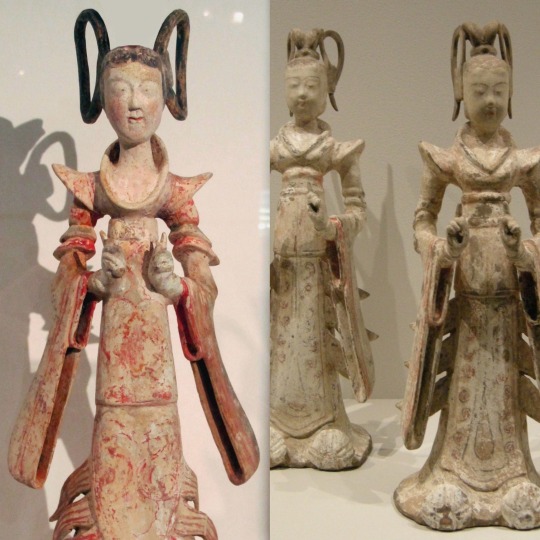
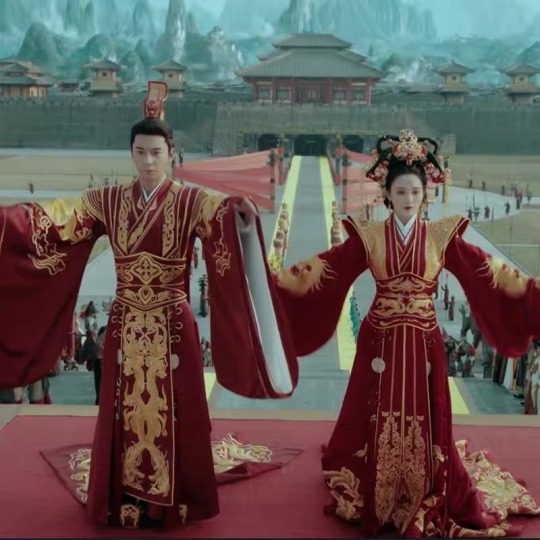
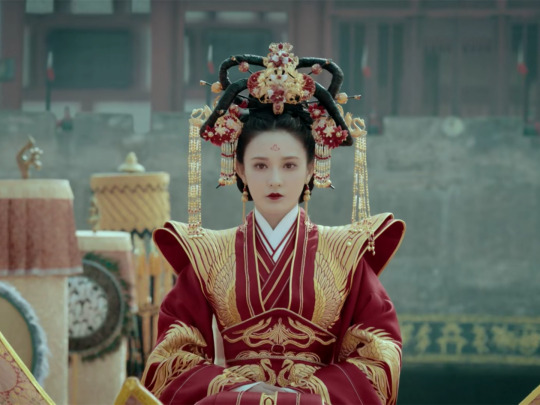
I think Qu Xiaofeng’s wedding dress in Goodbye My Princess was inspired to some extent by the “court ladies” statues from the Tang dynasty (618–907).
#china#chinese culture#east asia#chinese history#cdrama#chinese drama#hanfu#tang dynasty#wedding Hanfu#chinese wedding#dynastic China#goodbye my princess
316 notes
·
View notes
Text
A while back I realised that there's one specific fictional thing that is catnip to me, and that is vulnerability.
People accuse me of liking dire things in stories, but it's not so much that I love it when fictional people are suffering. It's that I kind of crave vulnerability in my protagonists.
I would define vulnerability as the opposite of agency. At its core, it involves a denial or a willing sacrifice of agency, and while writers talk about agency a lot, I don't think we spend anywhere near enough time discussing vulnerability.
Vulnerability is incredibly powerful in building empathy with a character, but it also forces the character into dire choices that reveal their true nature, and it makes the antagonistic forces seem a lot more powerful and scary. Vulnerability is why whump is appealing. It's one of the reasons we all care so much about out good fried Jonathan Harker, utterly at Dracula's mercy. It's why the myth of the voluntarily dying god is so powerful, even if you aren't a Christian.
More recently, I've been thinking a whole lot about how important vulnerability is in constructing a believable romance. In a believable romance, the characters will be emotionally vulnerable to, and on behalf of, one another. The "if you dare touch her" trope where the love interest comes unhinged at the sight of a loved one's suffering is vulnerability. Enemies to lovers is delicious because it asks what might happen if the person to whom you're most vulnerable was also the one with the greatest interest in exploiting that vulnerability. As I've written before, romance is about trust; and the corollary is that no romance can live without that heartstopping moment when one character takes the risk of putting themselves helplessly into the power of the other.
But I think that a lot of storytellers these days are prioritising agency at the cost of vulnerability. Disney's attempts at feminism are a great example of this. While the animated MULAN is outed as a woman in a moment of vulnerability that was the most powerful thing in the movie for me, in the live action Mulan's unmasking becomes a expression of agency that in my opinion guts the story of feeling. On the other hand, in the cdrama I'm currently watching (GOODBYE, MY PRINCESS) the male lead is SO averse to letting himself be vulnerable in any way at all that I simply can't find any romance in his interactions with the heroine.
I love to see stories that foreground marginalised people, but too often those stories focus on giving the protagonist agency at the cost of letting the antagonist land any hits at all. The result, imo, is a perfectly soulless story.
Of course, agency is a sine qua non of a good protagonist. But so is vulnerability, and there are so many amazing stories you can write about a vulnerable protagonist. W R Gingell's CITY BETWEEN series, for instance, is the story of a desperately vulnerable protagonist fighting to claim some agency in her own life and it's GLORIOUS. And beyond that, I would say that moments of vulnerability are indispensable even to very strong protagonists. One of the reasons FULLMETAL ALCHEMIST worked so gorgeously as a story for me, for instance, was the gutpunch moments of vulnerability that happened both at the very start and then with increasing tempo toward the end.
Vulnerability can be something a protagonist constantly struggles with, or something that unexpectedly blindsides someone who seemed to be invincible, or something a character does willingly for the sake of the people they love. It can be romantic, or not at all. But either way it's the interplay of agency and vulnerability that really MAKES a story for me.
You HAVE to have both.
#writing#writing advice#writing tip#jonathan harker#dracula#mulan#disney remakes#the city between#fullmetal alchemist brotherhood#goodbye my princess
193 notes
·
View notes
Text


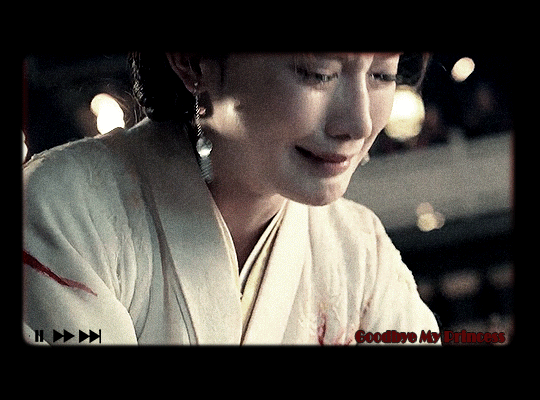
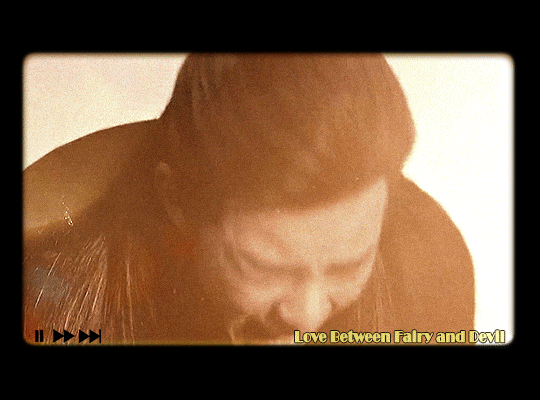


@userdramas event 12: LOSS
Life today is like a glass reflecting
Nothing more than my own grieving eyes...
#cdramaedit#userdramas#cdrama#asiandramanet#cdramasource#dailyasiandramas#asiancentral#who rules the world#the blood of youth#goodbye my princess#love between fairy and devil#ancient love poetry#heroes#说英雄谁是英雄#multi#tuserjade#mymymy#PLAY IT ON REPEATTTTTTTTTTTT#known fact... I LOVEEEEEEEEEE Death in dramassss#i loveeeeee putting my characters thru the ringerrrrr with loss of someone closeeee im atrociousss i knooooo#I WANT BREAKDOWNNSSSSSS I WANT PAINNNNNN#even when its unnecessary as long as it gives me the Aestheticcccc and LOOOOOKS... im fine with it#there are like 15 other good sobbing drama moments i can think of but these are just the really pretty ones i like to remember nowadays#my heart got stabbed on every last one these mmhmm#i wanted to participate in an event again so i literally put off every other show giffing to do this lollololol now i need a nap
89 notes
·
View notes
Text
hello, fellow kids
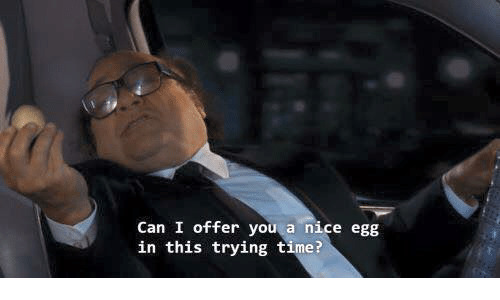
some recovery options for the ending of till the end of the moon:
want luo yunxi and bai lu actually happy, together, and in love? check out love is sweet
want an epic xianxia full of multiple lifetimes, angst, a male lead who experiences a lot of aesthetic suffering and outfit changes, but manages to stick the landing and deliver a coherent and happy ending? try love and redemption
or maybe you’re feeling the other way, and want a time travel romance that ends bittersweetly due to the inevitability of its conclusion, but still makes narrative and cohesive sense? try someday or one day
want to see a costume cdrama male lead get to go a little unhinged, as a treat, but still have a good ending? try love like the galaxy
want to see a costume cdrama male lead go a lot of unhinged, as a threat, but decidedly not get a good ending? try goodbye my princess
feel free to add some drama bandages!
#till the end of the moon#love is sweet#love and redemption#someday or one day#goodbye my princess#love like the galaxy#cdrama#twdrama
183 notes
·
View notes
Text
What if your romantic male lead is a monster? - a bit of a love letter post to Goodbye My Princess and The King's Woman
I've been thinking about these two dramas, and how much I love them. Now that a lot of airing cdramas I was loving finished, I have room and might end up rewatching either of them.
Goodbye My Princess is set in a fictional kingdom and has fictional protagonists and The King's Woman follows the very real founder of the Qin Dynasty and a fictional woman he loves but what both of them do so so so well is posit "what if our romantic male lead was a monster. A monster in love" and take that to its logical conclusion.
A little backtrack - there are of course plenty of narratives that have monstrous male leads, but the thing is - usually the narrative has them redeemed by love or, infuriatingly, does not agree with the viewer/reader's assessment of the male lead's monstrosity. Here, GMP and TKW confront the monstrosity head on - it is real and the love they feel is also real but there is no happy ending or redemption. A monster can love, but he (or she) is much more likely to destroy the object of their affection or drag them down to monstrosity with them; best case scenario, the other person leaves. But few narratives have the nerve to go that way - to portray that love as epic, as real, as everything - and yet end in destruction.
I confess I am very fond of any narrative of how one of the couple being ruthless/bad/whatever and not redeeming themselves has an impact on their relationship. Other dramas that do different variations of that flavor (Empress Ki, where both of them do not start out as monsters and both end up monsters together, or Princess Agents and The Outsiders, where ML starts out as a wonderful person who becomes monstrous for totally understanding/sympathetic reasons etc etc, or even politically ruthless men who save their softness for their personal life because it's safe to do so (The Advisors Alliance or one of the couples in Eternal Brotherhood) are all faves.) But nothing does it for me as much as "he was a monster from the moment FL met him, and he loved her more than his life, but it didn't fix anything and made it worse."
It's so beautifully bleak and I love it so much!
The King's Woman was the last Dilraba drama I truly loved:
youtube
And GMP the only drama of these leads I enjoyed:
youtube
But it was all so very worth it.
42 notes
·
View notes
Photo
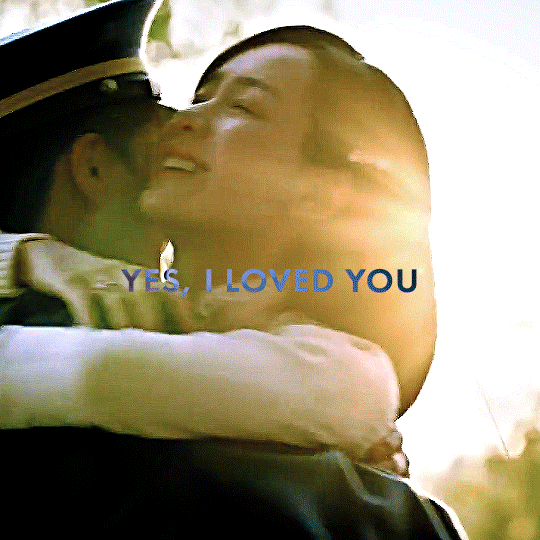


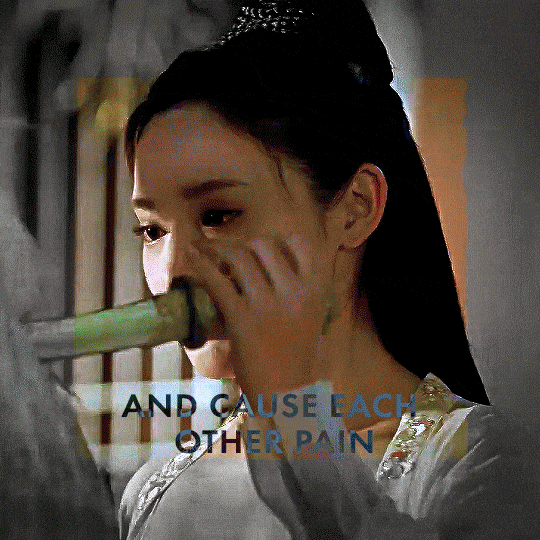

“Why would you even want this?“
-GONE GIRL (2014)
#love in flames of war#siege in fog#the rebel princess#monarch industry#goodbye my princess#lost track of time#cdrama#cdramagifs#cdramaedit#mygif#i was planning to just do a ltot set but then felt like doing a cross set#ltot
89 notes
·
View notes
Text
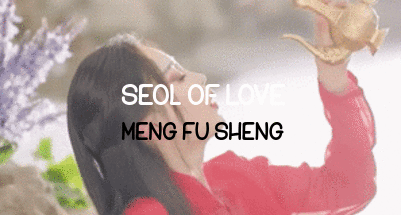
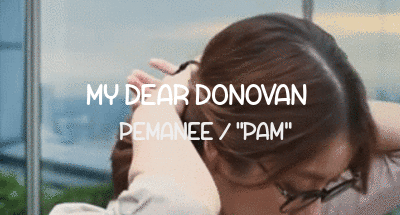

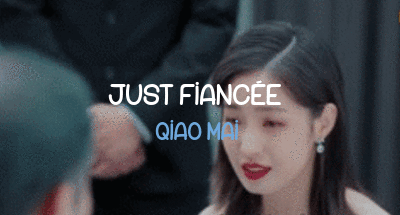

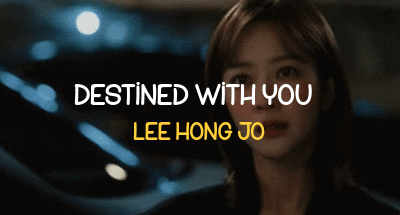

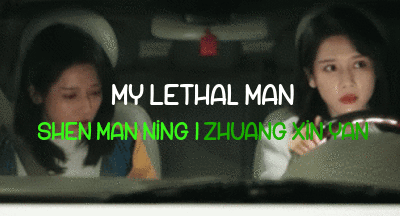
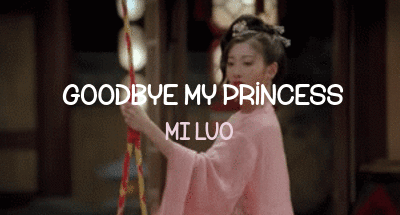

My Top Female Characters of 2023
#best mistake#kim yeon doo#goodbye my princess#mi luo#my dear donovan#pemanee#pam#just fiancee#qiao mai#destined with you#lee hong jo#seol of love#meng fu sheng#tale of the nine tailed 1938#ryu hong joo#a familiar stranger#shi qi#my lethal man#shen man ning#zhuang xin yan#i'm tee me too#looksorn#my top female characters of 2023#cdrama#chinese drama#kdrama#korean drama#thai drama
19 notes
·
View notes
Photo

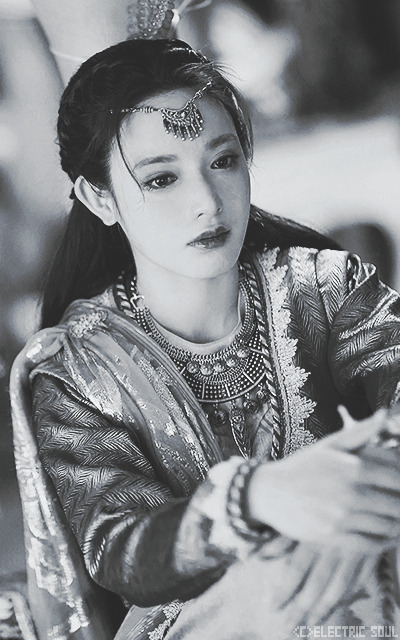
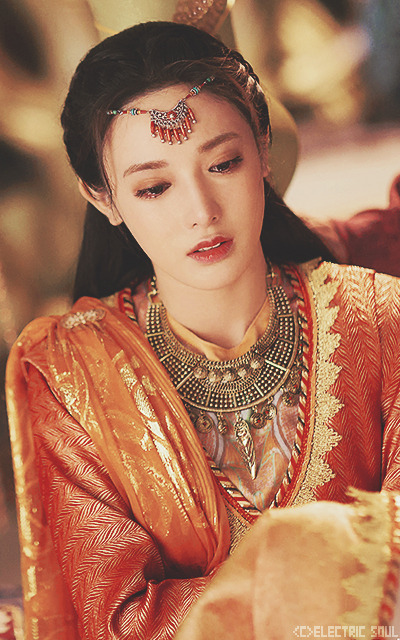






fc: Peng Xiaoran (彭小苒)
ethnicity: Han Chinese
67 notes
·
View notes
Text
Best character surnamed: Mi
Come and vote for the best characters with the same surname!*
What does best mean? It's up to you! Whether you love them, are intrigued by their characters, love to hate them, or they're your '2 second blorbos whose personality you made up wholesale', these are all reasons for you to vote for your favs!
*note, the surnames are not exactly the same in all the cases, as often there will be a different character. I am, however, grouping them all together otherwise things got more complicated.
Propaganda is very welcome! If I’ve forgotten anyone, let me know in the notes.
This is part of a larger series of ‘best character with X surname’ polls’. The overview with ongoing polls, winners, and future polls can be found here
#poll#the rational life#flavour its yours#go go squid#the wind blows from longxi#goodbye my princess
5 notes
·
View notes
Photo



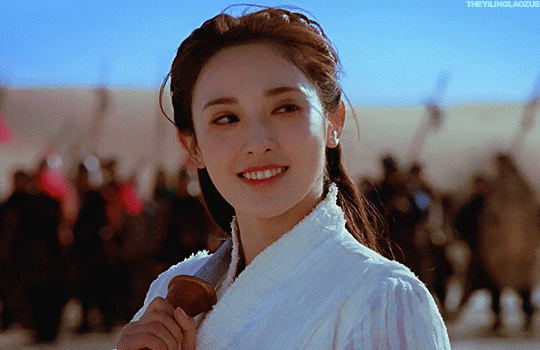


As Ninth Princess of Xi State, I married into the Li Empire. I did it for the continued peace of Xi State and the Li Empire. Today, if you must still cross swords on the battleground, then I have failed in my duty to my Father. I’ve failed Consort Mingyuan. I have also failed the Grand Empress Dowager. But most importantly, I have failed tens of thousands of people of the Xi State. If today you really must start this battle, regardless of which side I stand with, it is betrayal. There, if my life can wake Elder Brother and Crown Prince to the truth, can bring back true peace and happiness to Xi State, then I will not have any more regrets.
Gu Xiaowu. You once promised to do three things for me. Do you still remember? You still owe me two things. I want you to definitely do them. The first thing is that for the rest of your life, the armoured cavalry of the Central Plains will never enter Xi State again, not even half a step!
The last thing! Promise me that you will live well.
Peng Xiao Ran as Xiao Feng → Goodbye, My Princess, Episode 55.
#chineseartistsinc#cdramaedit#perioddramaedit#xiao feng#goodbye my princess#东宫#my graphics#useryd#userstorge
118 notes
·
View notes
Text
FL Character Development in Xianxia
There’s a great reddit post that explains the “heroine’s journey” in xianxias where there is a departure, descent, and return.
Tbh, I never really had a problem with the naive and childish FL. In fact, I like defending FLs who aren’t traditionally strong or badass. But my issue with xianxias is how poorly written the FL’s maturation arc is.
When you think about it, the naive and childish FL at the beginning of xianxias has the most agency. Her agency comes from her naivete. She has a goal that she is determine to work towards, despite all obstacles and potential punishments. Usually this goal is irrevocably linked with the ML in some way: to either train under his tutelage, to obtain something from him, or to try to get past him in order to attain what she wants.
I’ll use Immortal Samsara as an example since that’s the xianxia I most recently finished (so some of this may not apply to Love Between Fairy and Devil, which I haven’t watched yet but appears to be earning high praise from everyone lately).
The FL in Immortal Samsara wants to find whoever is flipping the turtle and to bring justice against this turtle abuser. The turtle abuser just so happens to be the ML, a high-ranking god who was the one who named her when she cultivated into her human form. The ML takes an interest in her because of her aptitude in chess and sees a potential in her to help him solve a chess/war strategy puzzle that’s been eluding him for years. He takes her under his wing and indirectly teaches her different spells and skills by having her copy scriptures. Like all stoic and stone-cold gods of war, he doesn’t admit or openly reveal his growing fondness of her but is hella protective of her when she’s bullied or mistreated by others, even though he bullies her himself.
In the Journey of Flower, the FL wants to be the ML’s disciple, and the same goes for Love and Destiny. In Love and Redemption, the FL simply wants to be the ML’s friend. But the idea is that the FL has a non-romantic goal of finding happiness and fulfillment, whether it be improving her powers or through simply making friends, and this non-romantic goal is connected to the ML.
The xianxia FL isn’t afraid to strive for what she wants. She’s headstrong. She has gumption. Her innocence and passion and freedom to live life how she wants is something that the ML never had but wishes he did. She embodies everything he wants but can’t have. She is whom he could be if he was raised in a different environment without the responsibility of the Three Realms. And so, he wants to protect her. This symbol of what he dreams to be and have.
But eventually, the ML rubs off on her, and she begins to mature. She starts to develop complex feelings, and her goals shift. She now wants the ML, to be with him. She begins to take on a protector role. She wants to protect her friends and family, and the ML. She is no longer his manic pixie dream girl, but she is starting to have goals that conflict with his. And he has to come to terms with it. He tries to contain her, but fails.
But the FL’s agency can only climb so high before it hits the restrictions of reality. After a lifetime of being sheltered and getting what she wants, the FL’s world is shattered when she believes that she’s been betrayed by the ML.
Hua Qian Gu, the FL in Journey of Flower, describes the irony the best: The people who loved me, died while trying to protect me. While the one I love wants me dead.
The FL who uses her whole heart to love and care for people genuinely doesn’t get her feelings reciprocated. In Immortal Samsara, she believed that she was doing what was best for her sister, only to learn that her sister felt belittled by her decisions.
The FL learns that reality can be cruel. And she conducts a final act of agency: to choose how to die on her own terms. This is the infamous “turning point” of the xianxia plot where the FL jumps off from a terrace or a cliff or a bridge in hopes of ending her misery and to find relief and freedom.
The FL is often rewarded with relief and freedom after doing this. For instance, in Ten Miles of Peach Blossoms, Bai Qian immediately regains her immortality after jumping from the terrace and has an even higher rank because she successfully passed her love trial, despite the pain and trauma it caused her. Goodbye My Princess is a historical romance that has a xianxia structure, and Xiaofeng gains relief from her pain and trauma by having her painful memories with the ML erased.
But In Immortal Samsara, the FL continues to suffer for 900 years before she is able to reincarnate as a carefree demon spirit in the mortal realm.
The FL goes through a “descent” and “rebirth”. She has a new life and new identity. Often times, this involves a reincarnation into the mortal world where she has a different personality. It then raises the nature vs. nurture discussion: which version of the FL is her “true” self? In the heavenly realm, the FL had the agency to be whomever she wanted, while she often is raised in oppressive conditions in the mortal realm, leading to a more repressed and subdued personality.
In Immortal Samsara, the FL’s personality in the mortal world is almost unchanged from her immortal personality because she lands in the mortal as a full-fledged flower demon. She’s a blank slate with no mortal upbringing, and so the core essence of her personality is preserved.
The mortal realm is a place for second chances. The ML gets a chance to love the FL properly. The FL learns more about the world and meets more people. She widens her horizons. And when faced with a better understanding of the world, she has to ask herself whether the ML is still worth loving when there’s a huge world out there to explore.
During this descent and rebirth phase, the FL is faced with a choice: to choose a new and different life or to choose the ML again. It’s another test of agency. Another trial. She has to learn to love the ML while still preserving herself.
But this is when the maturation arc tends to falter. The FL’s growth is interrupted by a rude awakening from her past where her memories come flooding back.
The mixing of past and present changes her permanently, and she’s thrust into a new state of being. She’s neither the naive and innocent girl from the beginning nor the weary, ignorant mortal from the second arc. Instead, she’s a completely different character now. Calm, collected, jaded, and lacking some of the fiery passion at the beginning.
I always had a problem with this sudden, overnight transformation. It always feels like the FL’s essence is lost. I think Goodbye My Princess did a great job of showing the FL’s tormented reaction at regaining her memories. She’s conflicted because she hates the ML but also loves him, and so she ends up hating herself because she doesn’t know how to face reality.
But in xianxias, the FL’s growth tend to stagnate after this revelation. It’s as if the authors think that this is the final state for the FL. She’s done developing once she regains her memories. Time to shift focus to the ML as a noble, tragic, suffering hero who tries to repent for what he does (not in Goodbye my Princess though, but that’s not a xianxia).
Part 1 of Immortal Samsara had been about the FL’s love for the ML and her subsequent suffering and redemption. But Part 2 shifts focus away from her, and it becomes the ML’s story. He’s now the one whom we’re supposed to pity, and it almost makes you forget that the FL walked the Forgetting River for 900 years for him. While I don’t blame the ML, I do think that the misunderstanding could have been handled better and avoided. He just blinded trusted a report saying that she had passed over to the mortal realm, without actually going down there to verify himself. And then he fell into a coma because he lost the will to keep going without her.
Likewise, I didn’t like how the FL in Love and Destiny suddenly had a holier than thou attitude when she returned to the heavenly realm. In Love and Redemption, the FL had poor judgment that made her doubt the ML despite all that they’ve been through together, which was such a contradiction to how she unconditionally trusted and protected him before her maturation.
Xianxias really make you grapple with 2 questions: what does good character growth mean, and how can a character still be consistent after having gone through growth?
It makes me think about the Louis Cha’s legendary wuxia stories, The Legend of the Condor Heroes and the Return of the Condor Heroes where we follow characters through decades of growth, but they still feel like the same characters. American TV shows can sometimes span a decade, and the writer have to make sure to keep their characters consistent.
Overall, I love xianxia, I love the angst, and I enjoy the switch to the ML’s story (especially when it involves Cheng Yi). But I always have an issue with how it’s integrated with the FL’s story and how the last phase of her heroine’s journey is often developed sloppily and lazily.
I started writing this post while watching Part 2 of Immortal Samsara, and now that I’ve finished it, it just further supports my critique that the FL is sidelined in favour of the ML at the end. The FL in Immortal Samsara is reduced to being nothing but a love interest for the ML, and she has no goals of her own except to help the ML save the world.
In xianxias, the FL’s third phase of her heroine’s journey often ends with a separation from the ML before an eventual reunion. This separation is meaningless to her growth, because the story tends to jump ahead hundreds to thousands of years into the future straight to the reunion. So we don’t see her mature as an independent person during this time, but we only see her waiting.
In Ashes of Love, the ML is the one who waits, and so this is even worse because we don’t see the FL at all until she reappears at the end.
Character growth and maturation is important, but you should still be able to draw a line between the character in the first episode and the last episode. Is there a connection? Think Anakin Skywalker and Vader. Or MingLan across 80 episodes.
Say what you will about xianxias and how illogical they are, but it’s such a niche genre that it’s fun to compare and contrast the different storylines and character from the growing (but still small) list of dramas in it.
I think my next post should be about comparing the different villains in xianxias.
#immortal samsara#xianxia#cdrama#love and redemption#ten miles of peach blossoms#eternal love#ashes of love#love and destiny#journey of flower#goodbye my princess
104 notes
·
View notes
Text
Trope Talk: Villain Romance
So, I was watching a villain romance cdrama again lately (GOODBYE MY PRINCESS) and it has been forcing me to think about what makes some villain romances work for me so well, and others…not so much.
First of all, a lot of my comments on romance at large, and on enemies-to-lovers as the broader trope to villain romance, apply here. For me, GOODBYE MY PRINCESS failed on a few different levels. It failed as a romance because the male lead so rarely, if ever, allowed himself to be vulnerable to the female lead that I couldn't believe either of them could genuinely be falling for each other. It failed as an enemies-to-lovers story because the female lead didn't feel like a match for the male lead in terms either of power or of morals: he was irredeemably awful and held all the power in the relationship, while she was unquenchably pure and naive, holding no power at all. But then, it also failed for me as a villain romance, and because I eat up villain romance with a spoon (WUTHERING HEIGHTS? THE LAST JEDI? LOVE BETWEEN FAIRY AND DEVIL? TILL THE END OF THE MOON? That ONE SCENE in RICHARD III? yess?) I've spent a lot of time thinking about different kinds of villain romance, how some are easier to "sell" to an audience than others - as a convincing HEA, I mean - and how each of them can and can't be made to work.
So far, I think a lot of it has to do with how the villain is built. First off, how does the villain present himself to the audience and other characters? Second, does the villain get a character arc, and is it for the better, or for the worse? Finally, does the villain have genuine feelings for the heroine, and does he achieve a happily ever after with her? Or, in other words: where does your villain come from, where is he going, and how does he get there?
There are a few different choices awaiting the author here, and some of them are, I believe, easier to sell an audience than others. Let's begin with the villain's character arc over the course of the story.
POSITIVE CHANGE VILLAIN
This one is the classic: your villain love interest starts out bad, but gets better. See: Erik from THE PHANTOM OF THE OPERA, Kylo Ren/Ben Solo in the STAR WARS sequels, Nux in MAD MAX: FURY ROAD, Dongfang Qingcang in LOVE BETWEEN FAIRY AND DEVIL, Thyme in F4: THAILAND.
Redemption arcs are honestly not easy to write, because they need to satisfy both justice and mercy; and authors, like everyone else, tend to want to prioritise one over the other. It's interesting that of the five examples of this trope I listed above, not one of the three the Western examples end in a HEA; two out of three equate redemption with death. Meanwhile, I could also note how the Asian examples pull their punches when it comes to facing the villain with the consequences of his actions, and these are some of the BEST examples.
Still, audiences can pull for a character who's clearly capable of learning from his mistakes, and we all want to inhabit a fantasy where a terrible man learns better and earns his happy ending. I've written this kind of villain romance a couple of times, notably with Vasily in my gaslamp books. Basically, if you plan to have a HEA as an endgame in your villain romance, a positive arc is the best way to make a longterm relationship convincing.
ANTIHERO WITH IMAGE PROBLEMS
This one is a bit more complicated. The love interest starts out well and gets better, but along the way he struggles with a dark side and an unfortunate predilection for angry black clothing and eyeliner. He isn't so much as a villain, as a well-meaning antagonist desperately trying not to live up to his dark reputation. See: Tantai Jin from TILL THE END OF THE MOON, but also Galadriel Higgins from THE SCHOLOMANCE books by Naomi Novik, who is in a very similar predicament though not part of a villain romance.
This one is tricky to write, because there aren't a lot of ways a genuinely well-meaning person is going to convincingly pose as an existential threat to the universe. Both TTEOTM and the SCHOLOMANCE books pull it off by invoking the future, either through time travel or through prophecy: the antihero is going to become the Dark Lord/Lady and destroy the world. This makes them a target in the present, and gives them a threatening dark side to struggle against. In TTEOTM, Tantai Jin is torn between his vindictive impulses to revenge himself on those who have wronged him, and his natural longing for the love of others. In this case, it's not so much that he's a villain intrinsically, as that he plays that role in the heroine's head.
I've never written one of these, except as a stage in a positive change arc, but it's a really fun character type that I'd genuinely love to see more of.
NEGATIVE CHANGE HERO
This is another classic: the hero who lives long enough to see himself become the villain. See: Anakin Skywalker from the STAR WARS prequels, Heathcliff from WUTHERING HEIGHTS, or Wang So from SCARLET HEART RYEO. If the Antihero With Image Problems withstands the temptation to become a villain, then this character succumbs with more or less struggle. He ususally also doesn't get the girl. In face, the heroine often doesn't survive this sort of story at all.
Audiences have less trouble with this kind of story, because it can come across as properly cautionary. "If you fall in love with someone who gets a villain arc, you will die, and it is probably your fault." Everyone is happy, except the characters. Personally, I think this is realistic, because I don't think a thorough-going villain CAN be a stable longterm relationship; but just once, instead of dying, I really would like to see the heroine nope out and go to live her life in peace and quiet, as happens in the wonderful Daisy Ridley OPHELIA film.
I've actually never written one of these, either, mostly because I've never been able to bring myself to write a tragedy. But I do love reading them.
UNREPENTANT VILLAIN
Or, Bad Man With a Crush. This is another really common iteration of the trope, but it's usually played from the point of view of the male hero, and the heroine usually doesn't reciprocate the villain's interest in any way. The great exception to this, of course, comes in Shakespeare's RICHARD III, where the unrepentant villain convinces the widow of one of his murder victims to marry him because he's THAT GOOD. Watching Laurence Olivier in this role at 13 may have been a formative moment of my life. Other examples are thick on the ground: Frollo from THE HUNCHBACK OF NOTRE DAME, Scarpia from TOSCA, the Darkling in SHADOW & BONE. Heck, I've written at least one of these myself.
Again, audiences expect this kind of villain either not to have his feelings returned or, if they are, to see either the heroine or the villain die by the end. In fact, this villain is the sort most likely not to have genuinely romantic feelings for the heroine at all; it's usually simply lust. The only example I mentioned where the villain arguably does have more complicated feelings for the heroine than a mere appetite for sex and power, and where she is tempted to reciprocate, is the one written by a woman, SHADOW & BONE - because a female writer is going to treat her heroine as a more fully orbed person, and insist on male characters treating her the same way.
-
The second question to ask when writing a villain romance is: how does the villain present himself to others, including the audience? Again, there are a few options here, but in any case I think one of the most important ingredients, if you're going to make the audience care about the villain, is a sense that the villain COULD be a better person than he is.
SHEEP IN WOLF'S CLOTHING
The villain projects a terrifying image, but deep down he has a heart of gold. Note that this is not about character arc (for instance, this describes both Tantai Jin, who is an antihero on a positive arc, and Wang So, who is a hero on a fall arc). Rather, it's about how other characters, and the audience, view the character throughout most of the story.
A Sheep in Wolf's Clothing is easier to "redeem" because half the work is done when you show that after all, the character is better than we thought, and doesn't need as much work to be redeemed. For this reason, it's a really good choice in any sort of villain romance, because you get someone who LOOKS bad but is in fact plausible as someone who IS capable of changing and learning.
Vasily from my Miss Dark series is definitely a sheep in wolf's clothing, which is extremely fun to write. Vasily's had a traumatic change of heart which has taken away his taste for blood, treachery, and power. His habits haven't quite caught up with his heart, yet, and his determination to hold onto a semblance of power and terror makes him desperate to playact as a villainous vampire prince even though he's none of those things any longer.
SHEEP IN SHEEP'S CLOTHING
I was nearly not going to include this variant at all, because where's the villainy in that? But then I remembered Anakin Skywalker. Anakin has a dark side, like Tantai Jin, which he gives into on occasion, but the prophecy that he will bring balance to the Force seems to predict a bright future for him. And he genuinely is a well-meaning person, who only wants to protect the people he cares about. For most of the story, Anakin is a good person and an upstanding Jedi with a bright future. This only makes his eventual downfall more tragic.
While how the villain presents himself is not always linked to a particular arc, this one is, since it requires a genuine hero to begin with. As I mentioned above, this kind of fall usually spells death for the heroine. I think this particular villain romance tends to be underexplored, because the freaks who like villain romance aren't into the aesthetic of a genuinely good man being corrupted, while those who write the downfall arc usually aren't into the aesthetic of villain romance. Nobody has ever written a romance about the Macbeths, and this strikes me as a missed opportunity.
WOLF IN WOLF'S CLOTHING
This villain is exactly as bad as he appears on the outside, but if he's lucky, big changes are coming for him. In LOVE BETWEEN FAIRY AND DEVIL, Dongfang Qingcang is about to have his cold dead heart magically melted. In FALLING FOR INNOCENCE, Kang Min-Ho is literally given a new one. As a Christian, I love seeing fantasy elements used to explain why the wolf in wolf's clothing is suddenly forced to trade a heart of stone for a heart of flesh, because in Christianity the only way this ever happens is through a literal miracle.
And I do think this kind of villain IS difficult to redeem for his HEA without some kind of miracle, because he's genuinely done some dreadful things, and he's determined not to repent for any of them. Kylo Ren from the STAR WARS sequels is a really excellent example of a Wolf in Wolf's Clothing: when Rey spits at him, "You're a monster!" he responds almost proudly, "Yes, I am." In a way, the Wolf in Wolf's Clothing's honesty is his one redeeming feature: he may be terrible in almost every way, but he never pretends to be a good man. This is something that the next option on the list lacks altogether.
WOLF IN SHEEP'S CLOTHING
This villain looks like a good and upright person, but it's all a facade. In reality, he's conniving, ruthless, and manipulative, and whether he's a "hero" on a negative arc or a straight-up Unrepentant Villain, the story is about to unmask him as the bastard he is.
Western literature has a whole array of this type of character, and they're usually the smooth hypocrites of the canon: TOSCA's Scarpia, HUNCHBACK's Frollo, MEASURE FOR MEASURE's Angelo, KNIVES OUT's Ransom. There's just something particularly evil about someone who sees and experiences true goodness and sees it as his opportunity to mask his evil deeds, and that's why we recognise such people as irredeemable. This is why BLUEBEARD is one of the trickiest fairytales to retell, at least if you're interested in a HEA - because Bluebeard, unlike the Beast or Hades or any of the other dubious bridegrooms of fairytale literature, commits awful crimes while pretending to be an ordinary, upright businessman.
This is also where we find GOODBYE MY PRINCESS's Li Chengyin, who marries this with a corruption/fall arc. Very early on in the story, we see that although Chengyin has genuine feelings for the heroine, he's fully capable of betraying her and murdering her family for purely political motivations. At first, Chengyin is neither experienced nor hardened in evil, but he absolutely will betray anyone in his path if it will benefit his plans.
This sort of villain is particularly difficult to redeem, because he's someone who has approval and love already but chooses to destroy everyone around him anyway. He is also uniquely enraging, because we've all known people this terrible in real life - from high profile teachers and carers being caught in ongoing sexual predation, to that crumby ex-husband who traumatised your good friend. I don't think I've ever seen a character like this be convincingly redeemed, and while I think it COULD be done - I do have a Bluebeard retelling of my own up my sleeve - I do that, as with the Wolf in Wolf's Clothing, it would have to come with some kind of fantastical/miraculous explanation.
And in the end, let's face it, it's always most cathartic to see this sort of person get their comeuppance.
-
Third and finally, is your villain romance going to get a happily ever after? I'm one of those people who will get a lot of fun out of a romance that ends badly, like SCARLET HEART RYEO, or even something that isn't a romance at all, like RICHARD III and the ill-fated Anne Neville. But whatever you pick, I'm begging you, be very clear about whether the villain has genuine feelings for the heroine or not, and don't reward some horrible person who's never convincingly expressed care for another, with any kind of romantic validation.
HEA VARIATIONS
Maybe your villain and heroine make a match of it. Most of the time this is because the villain undergoes a positive character arc to earn his happy ending, and I've got to say, this is a very sensible choice. I personally do not need to see an unrepentantly terrible person get any kind of longterm romantic relationship, either because he's trapped/deceived the heroine or because he's corrupted her to become as bad as himself; I honestly don't think that terrible people CAN have a successful longterm relationship. That said, I've written a relationship where the villain DOES make the love interest worse, but where ultimately the genuine love, empathy, and trust between them ultimately does drag both of them back to the light.
TRAGIC VARIATIONS
There are a great many more options available here. The main thing I would say is that you have to give an ending that is justified by what comes before.
A common choice is to give the villain a positive arc culminating in a heroic death. I've seen this done well (FURY ROAD). I've seen it done terribly (RISE OF SKYWALKER). Personally I feel that unless the themes absolutely demand this, you should avoid it, because too often it comes across as the writers arbitrarily ridding themselves of a character they don't know what to do with.
Another common choice is to give the villain a negative arc culminating in the heroine/love interest's death. I've seen this done in ways I don't hate. In RICHARD III, Richard kills literally everyone he touches. In SCARLET HEART RYEO, death is a realistic result of the heroine's trauma and closes the door definitively on the villain's hopes for reconciliation; but it also returns her to her far better life in the future, so it becomes a glimmer of hope for her (though not quite enough). Too often, however, this choice carries with it sexist overtones. Death becomes the heroine's punishment for the crime of loving a bad man (or something else equally fatuous), while the villain is "punished" only by having to live without her.
What about a negative arc culminating in the villain's death? Well, I strongly disliked the choice made in SHADOW AND BONE, in which the heroine guts the villain while hissing "there is no redemption"; to me it was lacking in either tragic catharsis OR eucatastrophe. I think you CAN have a satisfying ending in which the heroine or somebody else kills the villain, but it needs to be an expression of catharsis or eucatastrophe, and we definitely need to feel that the villain is beyond saving - which, if you've made him a genuine romantic possibility, is often hard to feel.
I love the ending of WUTHERING HEIGHTS, in which the villain dies frustrated after realising that after all, cruelty and abuse DIDN'T have to turn him into a villain; he then reunites with the ghost of his equally terrible love interest. I also love the ending of OPHELIA, in which Ophelia, realising that Hamlet cannot be redeemed from his quest for vengeance, quietly nopes out and goes to live a happy life on her own. And then, there's the gold standard for bittersweet endings, THE PHANTOM OF THE OPERA, in which the villain doesn't get the girl, but neither of them have to die, and her compassion for him causes him to go off and live a better life on his own. I think the thing all these have in common is that even though none of them end with the couple together, they afford the whole story a sense of hope: cycles of abuse are broken, some people get better than they deserve, and even those that don't are doomed by their own actions, rather than being killed off in a way that feels punitive or vindictive. And I feel that this is an essential ingredient of tragedy: that justice arises naturally out of the villain's own actions rather than being imposed by some righteous warrior.
PUTTING IT TOGETHER
Some of these options are easier to sell the audience than others. For instance, a Wolf in Sheep's Clothing on an Unrepentant Villain arc is absolutely not good material for a HEA romance, while a Sheep in Wolf's Clothing on a Positive arc is probably your best bet (it's a classic for a reason). Others, like a Wolf in Wolf's Clothing on a positive arc, may require careful handling to ensure that the audience is happy to come along for the ride. Whatever you choose, however, it pays to be conscious of which tropes you're using, where the audience has seen them before, and what they expect to see happen to the characters that enact them. This doesn't mean that you can't defy audience expectations, of course; just that it might take a little more work to bring the audience along with you on the journey that you've planned, and that it might not be wise to pick all the worst possible options and expect the audience to embrace the character in question. (cough Li Chengyin cough).
#goodbye my princess#li chengyin#cdrama#asian drama#kdrama#wuthering heights#heathcliff x cathy#the last jedi#reylo#kylo ren#tros#love between fairy and devil#till the end of the moon#richard iii#the phantom of the opera#star wars#the revenge of the sith#mad max: fury road#fury road#f4: thailand#scarlet heart ryeo#moon lovers scarlet heart ryeo#the hunchback of notre dame#shadow and bone#darklina#tosca#miss dark's apparitions#anidala#falling for innocence#measure for measure
115 notes
·
View notes
Text
Anh’s list of top tier angsty scenes in Chinese drama that’s so good someone make a Malec au for this (1/4)
Drama: Goodbye My Princess
Context: the guy get ambushed while on a mission in the girl’s country, she saved him, he faked his identity and they fall in love. the day of the wedding, he brought his troop with him to take over the girl’s tribe and killed her granddad in front of her. then they both jumped in a lost river and loose their memory. he got made a crown prince and she the assigned bride. but then she got her memory back, she couldn’t deal with not being able to kill him for killing her family or the two countries at war again. this can be the PERFECT malec scene omg just image all the angsty feeling aghhh the I forgive you the last wish promise me you will be happy
#malec#alec lightwood#magnus bane#shadowhunters#tsc#tmi#anh’s c-drama list#goodbye my princess#c drama#also alec dressing in all white which supposed to be the color of wedding in his country#but it’s actually his funeral#ughh#also it kinda spoil sth so
8 notes
·
View notes
Text

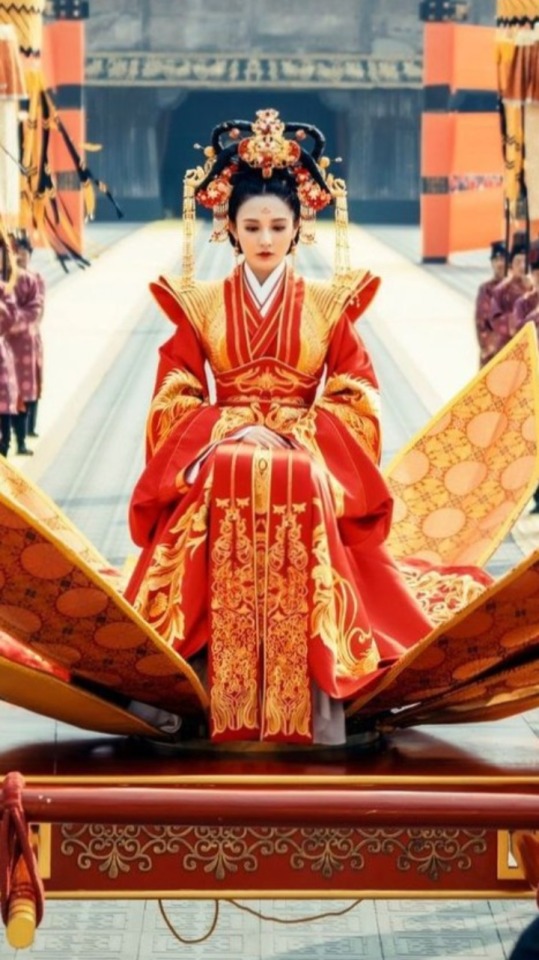

Period dramas dresses tournament: Red dresses FINALS!- Gongsun Li, The king's woman (gifset) vs Qu Xiaofeng, Goodbye my princess (pics set) vs Lucrezia Borgia, The Borgias (gifset)
#period drama dresses tournament#tournament poll#tumblr tournament#polls#fashion poll#gongsun li#the king's woman#qu xiaofeng#goodbye my princess#lucrezia borgia#the borgias#red finals#tournament finals
49 notes
·
View notes
Text
when ambiguous cdrama male leads do The Thing
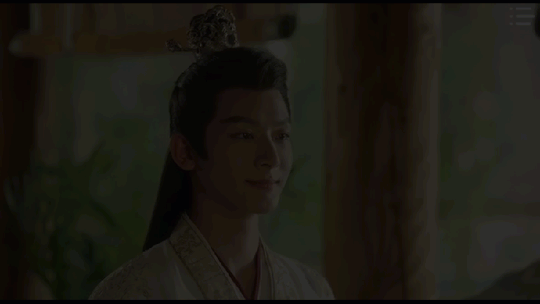
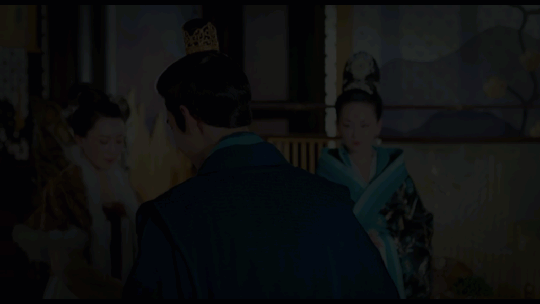
44 notes
·
View notes
Text
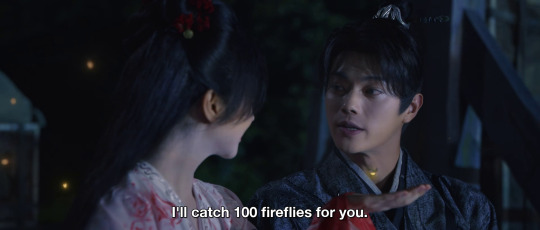
Really?!
REALLY?!
You are going THERE, Fei Wo Si Cun?
This was the last FWSC adaptation where ML promised to catch 100 fireflies for FL:
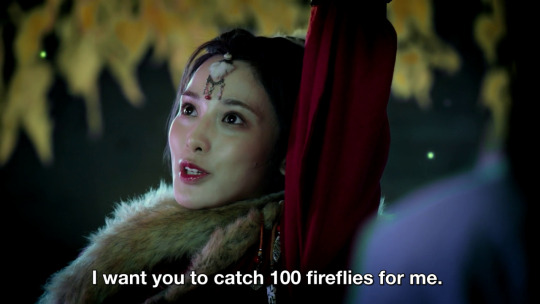

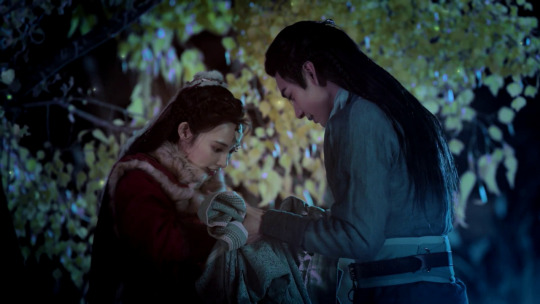
Where do I apply for compensation for my immense psychic damage?!
45 notes
·
View notes